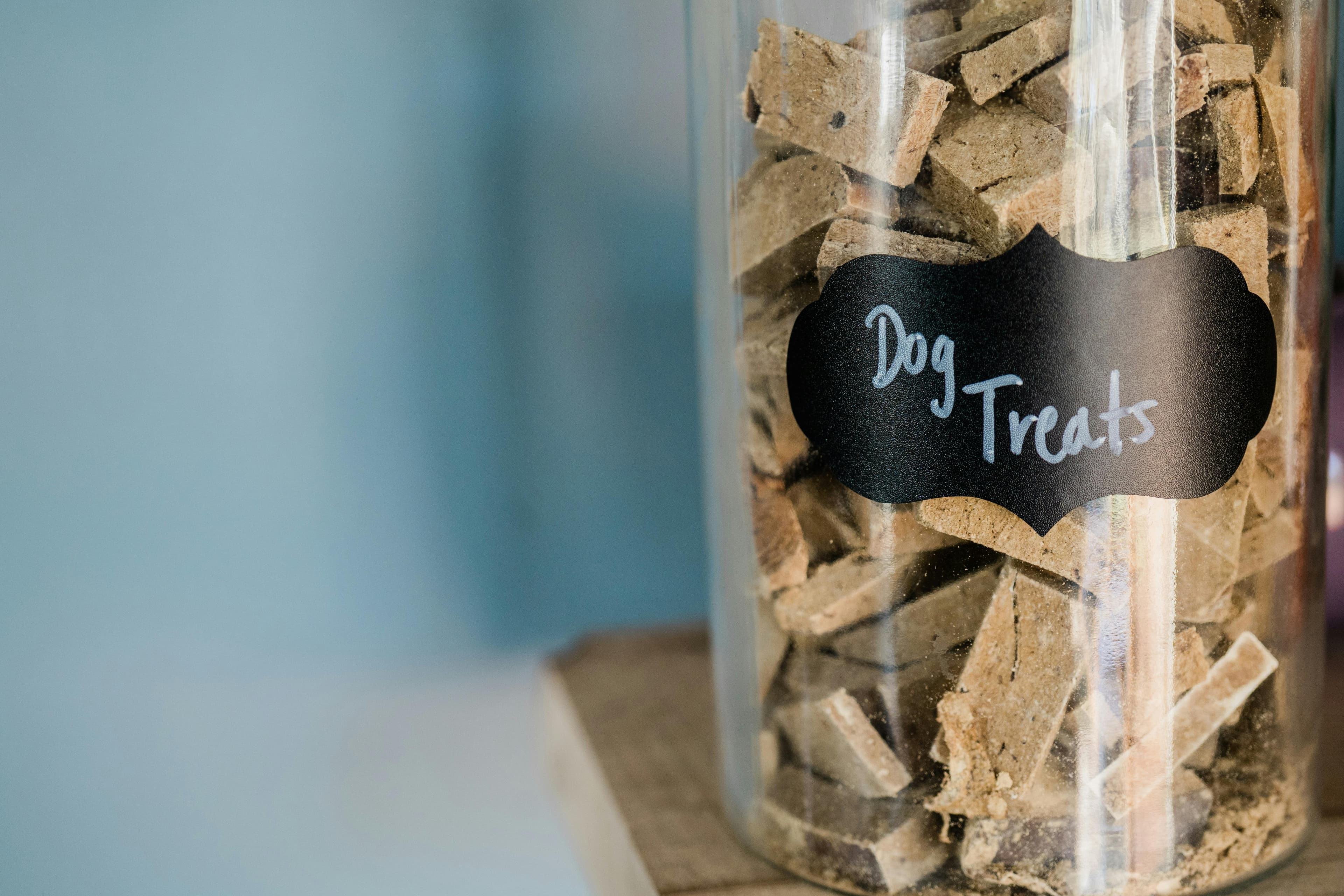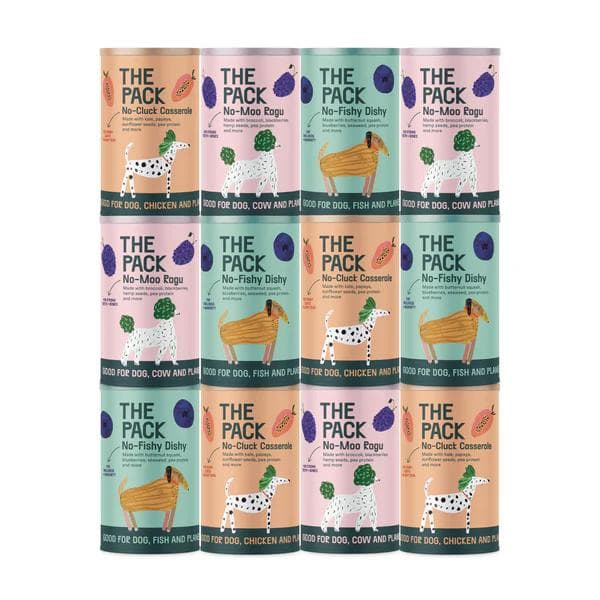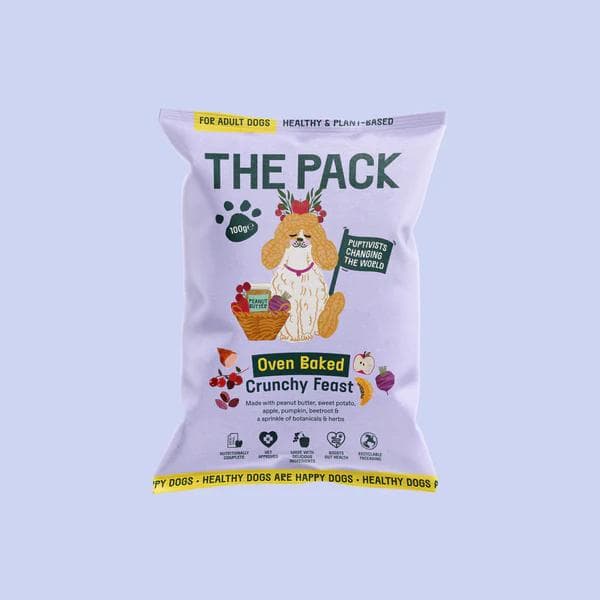Key Takeaways
To give dogs healthy and balanced options other than meat, it's important to know about plant protein. Making a plant-based meal for dogs takes a lot of thought, knowledge, and planning, whether it's for health, allergies, or moral reasons. Here are some important things to think about when choosing and adding plant proteins to your dog's diet.
- Plant proteins can meet dogs' nutritional needs with adequate planning: By carefully choosing plant-based sources, you can make sure that dogs get all the important amino acids they need to stay healthy.
- Complete proteins make planning easier: Foods like soy, quinoa, and some legumes naturally provide all the amino acids your body needs, which makes it easier to combine diverse protein sources.
- Mixing incomplete proteins keeps things in balance: You may provide your dog a full amino acid profile by mixing grains (like brown rice) with legumes (like lentils and chickpeas).
- Alternative proteins need nutrient-rich options: Peas, lentils, quinoa, hemp seeds, and pumpkin seeds are all plant-based foods that are high in protein and other important nutrients. A balanced diet keeps you from missing out on important nutrients and helps you stay healthy in the long run.
- Health benefits include relief from allergies and digestive problems: Plant proteins are frequently easier to digest and may help with allergies more than conventional animal protein sources like beef or chicken.
- Be aware of nutrient deficits in vegan diets: If you eat only plants, keep an eye out for deficiencies in taurine, carnitine, vitamin B12, and other important elements. It can be required to take the right supplements.
- Quinoa is a complete protein powerhouse: Quinoa is a rare plant-based complete protein that has a lot of amino acids, fibre, and minerals that dogs need, making it a great choice for their diet.
- Soy protein helps muscles get energy and heal: Soy is a great source of important amino acids, which makes it a great food for active or older dogs that need to keep their muscles healthy and get more energy.
- Legumes are powerhouses that can do two things: Lentils, peas, and chickpeas are good sources of protein and fibre, which is good for your digestion and your health in general.
- Make the change slowly to avoid stress: When dogs switch to a plant-based diet, they need to make adjustments slowly so that their stomachs don't get upset and they have time to get used to the new tastes and textures.
Adding plant proteins to a dog's diet can improve their health, but you need to be careful about how much and how often you do it. Read on for useful tips, advantages, and meal-prep ideas to help your dog stay healthy.
Introduction
Plant-based meals for dogs have gone from being a fad to a long-term, healthy option. Dogs can eat anything, but a well-planned plant-based diet can give them all the nutrients they need while also helping them digest food, lowering their risk of meat-related allergies, and being a long-term way to feed them.
This new area of dog nutrition uses plant-based protein sources like quinoa, lentils, and seeds, which all help make a balanced and nutrient-rich diet. But to get the most nutrition from plant proteins, you need to combine meals in a smart way, keep an eye on certain amino acids, and slowly change your diet to avoid digestive or nutritional problems.
This in-depth guide looks at the science behind plant-extracted proteins and breaks down the best sources so that dog owners may make healthy, balanced, plant-based meals for their pets.
The Nutritional Basis of Plant Protein for Dogs
If you're thinking of putting your dog on a diet that includes plant protein, you need to understand the science behind nutrition. Dogs can get energy and nutrition from plants, but if you want to feed your dog only plants, you need to be careful about the protein and amino acid content.
How Amino Acids Help Dogs Stay Healthy
Dogs need 10 essential amino acids, such as lysine, methionine, and valine, that they can't make on their own. Animal-based proteins naturally provide them in the right amounts, while plant proteins are sometimes missing one or more of these important building pieces, which makes them "incomplete."
Difficulties and Risks in Nutrition
Grains and some legumes have incomplete proteins, thus they need to be paired with other foods to produce a complete amino acid profile. Not getting this balance right can lead to health problems like losing muscle, having a weak immune system, or, in severe situations, taurine deficiency-linked illnesses like dilated cardiomyopathy (DCM). Knowing how to combine supplements like taurine, carnitine, and B12 and filling in the gaps helps lower these dangers.
Proteins that are complete and those that are not
Different plants have different levels of protein quality. Some plants, like quinoa or soy, are "complete" because they have all the required amino acids. Most plants, on the other hand, are "incomplete," so you have to mix them together on purpose to get enough nutrients.
Complete Proteins at a Glance
- Quinoa is a great choice for plant-based dog meals since it has a wide range of amino acids, is easy to digest (up to 85%), and can be used in many different ways. Because it has a lot of lysine, it is as nutritious as animal proteins.
- Soy is another great option because it has a lot of protein that can help you keep your muscle mass and energy levels up at all stages of life.
The Art of Mixing Proteins
Pairing foods in a smart way increases the number of amino acids available:
- When you combine legumes (which are high in lysine) with grains like rice (which are high in methionine), you get a complete profile.
- Seeds like hemp are "complete" in a technical sense, but dogs' bodies work better when they are paired with other protein-rich foods.
The 10 Best Plant Proteins for Dogs
1. Quinoa This pseudocereal has a full amino acid profile, anti-inflammatory qualities, and a lot of fibre, but it needs to be rinsed and cooked properly to be easy to digest. In addition to protein, its antioxidants help keep you healthy in the long run.
2. Lentils
Lentils are a good source of protein and go well with grains like rice to provide a balanced meal. Their prebiotic fibres make gut health even better.
3. Chickpeas
Chickpeas are full in lysine and gut-friendly fibres, so they go well with grains in meals for balanced nutrition.
4. Soy Protein
Soy is a complete protein that can help keep muscles strong and give you energy that is easy to use. It can be found in foods like tofu and textured soy protein.
5. Hemp Seeds
Hemp is high in omega-3 and omega-6 fats and has protein that is easy to digest, but you may need to add more amino acids to your diet.
6. Seeds of Pumpkin
They are more of a nutritional supplement than a protein staple because they contain proteins and important minerals like zinc and magnesium.
7. Peas
Peas are another legume that people love. They are high in protein, provide you energy, and are good for your digestive health. However, they taste best when mixed with other foods.
8. Black Beans
Black beans are high in fibre and have a moderate amount of protein. They also have important micronutrients that make them even better.
9. Sweet Potatoes
Sweet potatoes are not the best source of protein, but they do provide you more energy and vitamin A, which helps balance out legumes in plant-based diets.
10. Oats
Rolled oats are a great mix of carbohydrates and protein, and they go great with legumes to make vegan diets more balanced.
Helpful Advice for Moving to Plant-Based Meals
When you change your dog's diet to incorporate more plant proteins, you should do so slowly so that their digestive system can become used to it. Over the course of 7 to 10 days, slowly replace regular protein sources with new foods in modest amounts. Checking the consistency of your stool and your overall energy levels will help you figure out how well you can handle anything.
Don't forget that plant proteins have water in them. Staying hydrated is very important for digestion. Also, try to include a variety of foods to make sure you get a range of nutrients and that the food tastes good.
Conclusion
A plant-based diet for dogs is possible and good for them if you plan it carefully. It can help with allergies and digestion, among other things. By carefully combining foods and adding supplements, you can make sure that all of your critical amino acid needs are met and that you don't get any deficiencies that could hurt your health.
This method is based on quinoa, lentils, hemp seeds, and other plant proteins that can be used in many ways. But it is still very important to watch closely and evaluate regularly. Dog owners may support long-term health, sustainability, and ethical feeding practices by doing their homework. This will lead to a more diverse future in dog nutrition.






